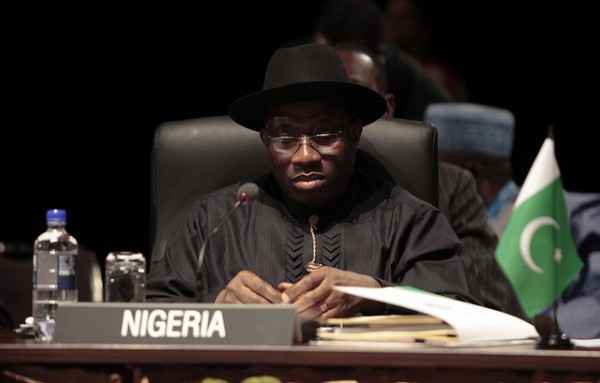
Photo Credit: Annaliese McDonough/Commonwealth Sectratariat
On June 11th, the United Nations High Commissioner for Refugees (UNHCR) reported that more than 6,000 Nigerians had fled to Niger to escape armed clashes between government forces and armed insurgents associated with Boko Haram (“Western education is sinful”). This displacement is one of the latest developments in an escalation of violence that has gripped Nigeria’s northeastern states of Borno, Yabe, and Adamawa in recent months, as the government in Abuja tries to establish control over an area buffeted by Islamic terrorist groups.
Born out of the destitute conditions in the northeast, Boko Haram was formed in the early 2000s and went largely unnoticed by the international community until orchestrating the bombing of an U.N. compound in Abuja in 2011. A subsequent battle in the fishing town of Baga between Nigeria’s security forces and insurgent fighters in April 2013 led to the destruction of 2,000 homes and the death of at least 188 civilians. This latter incident raised eyebrows in the West, with Human Rights Watch accusing the Nigerian government of trying to cover up the extent of abuses perpetrated by its security forces. U.S. Secretary of State John Kerry, while in Ethiopia in May, 2013 to commemorate the 50th anniversary of the African Union, even went so far as to single out the Nigerian armed forces’ actions in Baga, urging them to avoid committing additional human rights violations.
Forced to deal with the insurgents, and pressured to find an avenue other than deploying its security forces, Nigeria’s president, Goodluck Jonathan, has recently established what has clumsily been called a “committee on dialogue and peaceful resolution of security challenges.” Having meaningful dialogue, however, may prove harder than it appears. For one, Nigerian security forces have been highly inept at avoiding civilian casualties in the north – observe the violence in Baga. And it appears likely they will perpetrate additional human rights violations against civilians in the northeast, hardening Boko Haram’s resolve hold onto its guns and not engage fully in talks. Secondly, it is unclear that calling for talks with Boko Haram will bring its leadership to the the negotiating table; no one is certain who calls the shots. To make matters worse, Ansaru, an even more extreme group that broke off from Boko Haram, has been accused of carrying out some of the worst violence in the region and shows scant desire to participate in constructive dialogue. Even if Boko Haram were willing to engage in productive conversations, there is little reason to believe that this splinter faction would not continue its campaign of violence.
In addition, and likely an underlying cause of the violence, local grievances, such as economic inequality, poor governance, and widespread corruption remain unaddressed and don’t appear to be part of the committee on dialogue and peaceful resolution of security challenges’ mandate. Although the Nigerian government has established programs to tackle similar concerns in other regions of the country and to provide angry youth skills to find jobs, there seems to be little effort in the offing for similar initiatives in the northeast of the country. Puzzling, given that Borno state in the northeast, where Boko Haram originated, has some of the lowest rates of female literacy, school attendance and income per head in a country ranked 153 out of 187 countries on the United Nations 2013 Human Development Index. Nigeria is the biggest oil-producer in Africa, earning billions from its wells in the south, little of which, if any, ever makes it to the impoverished north. Corruption, venality and opacity within the oil industry are major problems, and for young men in the northern Nigeria without recourse to viable livelihoods, these injustices partly serve as rallying cry to take up arms against misrule.
Still, to judge by the government’s response thus far, the insurgency is viewed in Abuja as a security threat that must be eliminated militarily, as opposed to symptomatic of the underlying issues in the region. Although its troops have formed part of U.N. peacekeeping forces in Darfur, Congo and, beginning in July, Mali, Nigeria’s armed forces have a less than stellar record in dealing with the armed insurgencies in its own country. In 2009, in response to Boko Haram’s increased violence in Borno, government security forces led an indiscriminate crackdown, killing more than 1,000 people. Despite these efforts, Boko Haram’s attacks have only grown more sophisticated and deadly – witness the attack on the U.N. compound in Abuja. Moreover, even if the Nigerian army were to assume control of population centers in the northeast, the porous nature of the state’s border with Niger, Chad and Cameroon would in all likelihood provide the insurgents with ample ungoverned space to regroup, rearm and plot renewed strikes against the state. One only has to look at Malian forces’ disturbing human rights record since the French-led invasion in January of this year to have an idea of the human rights abuses that could continue to transpire in Nigeria, swelling the insurgency’s ranks with young, aggrieved men willing to battle the state.
Given the reality on the ground, can the central government stop the violence through its proposed talks? Unlikely. Boko Haram has succeeded not only in exploiting economic injustices between north and south, but has also spread violence across northern Nigeria to the two biggest cities, Kano and Kaduna. As harried jihadists from Mali and other parts of the Sahel seek refuge, some may find a warm reception in northern Nigeria. All the more reason for Mr. Jonathan to recognize that much more is needed than dialogue to come to terms with the insurgents. The President would be wise to focus his efforts on developing the northeast, transferring part of Nigeria’s oil largesse to in an effort to give young men jobs. Until Mr. Jonathan gets serious about addressing the very real grievances that gave rise to Boko Haram in the first place, the outlook for dialogue seems unpromising.